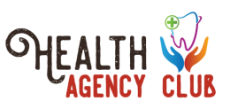How Does the Covid-19 Affect Addicts?
The globe has changed drastically in only a few years due to the 2019 coronavirus respiratory illness pandemic (COVID-19). Businesses, academic institutions, religious organizations, and people’s daily lives have all been impacted financially and socially. The disease has had an impact on the addiction and recovery communities in a similar way to how it has on the rest of society. Separated from their support systems, addicts and recuperating addicts suffer substantial risks to their bodily and mental well-being. Even though addiction treatment may save a human’s life, a person’s anxieties and insecurities about the future often keep them from enrolling in or staying in a program. To better assist people in need, community members are addressing the link between addiction and COVID-19.
The Physical Effects of COVID-19 on an Addict
Addiction is an illness whose effects are felt across the whole body and weakens the immune system. Abusing alcohol for an extended length of time may cause heart muscle weakness, resulting in arrhythmias, edema (heart drooping), elevated blood pressure, and perhaps even stroke. Alcohol usage produces dangerous substances that induce pancreatitis, enlargement, and inflammation of the bile ducts and blood vessels. Excessive alcohol use may also cause major health issues such cirrhosis, alcoholic liver disease, fibrosis, and hyperlipidemia. Alcohol abuse has also been linked to neurodegeneration and a number of cancers. Your likelihood of developing severe COVID-19 symptoms may rise if you have one of these potentially fatal conditions.
A person’s physical deterioration may be accelerated by using illicit substances. Chronic use of methamphetamine is linked to a number of detrimental health effects, including but not confined to loss of appetite, dental decay, respiratory problems (particularly when smoked), infectious infections, and sores (when injected). Abuse of opioids, including hydrocodone, oxycodone, codeine, fentanyl, and heroin, has a deleterious impact on the respiratory and pulmonary systems. Smokers are more susceptible to COVID-19 effects because of the harm that cigarettes, tobacco, and other drug usage has on the lungs. For smokers and those who take drugs, COVID-19 poses a serious health danger, according to the National Institute on Drug Abuse.
The respiratory tract’s lining cells are the first place the COVID-19 virus infects a person. The first symptoms include shortness of breath, a dry cough, fever, muscle pain, headache, and weariness. The symptoms worsen as the illness moves from the upper to the lower respiratory tract. A healthy patient’s immune system may be able to prevent the infection from moving beyond the upper respiratory tract, allowing them to recover fully. In those who are vulnerable, COVID-19 may cause bronchitis and pneumonia. A few particularly severe cases might result in the development of acute respiratory distress syndrome (ARDS). Although a healthy person should be able to fully recover from COVID-19, somebody with lung defects, compromised immune system, or chronic illness is in jeopardy of serious illness or death.
A Few Words from Taylor Recovery Center in Dallas
Covid-19 has made futile the battle against drug addictions. You can do a variety of things to start healing, however. Taylor Recovery Center in Dallas can provide recommendations for addiction treatment alternatives that are catered to your particular needs and circumstances.




